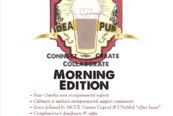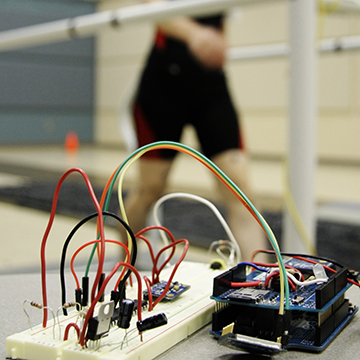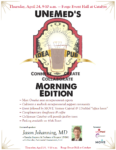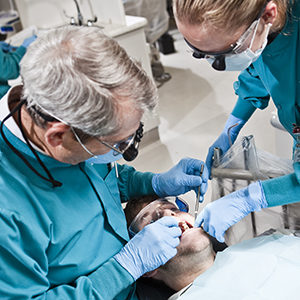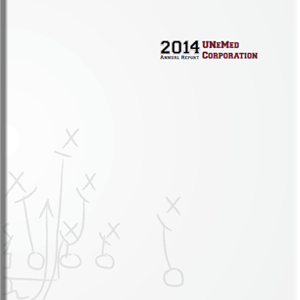
Dr. Dixon
OMAHA, Neb. (June 10, 2020)—UNeMed recently secured a $50,000 SHARPhub grant to create the Medical Device Prototype Pipeline project.
UNeMed—the technology transfer and commercialization office for the Omaha campuses of the University of Nebraska—will identify projects with potential as healthcare products that can form the basis of a startup company. UNeMed will then work with the Machining and Prototyping Core facility to create and test working porotypes for those technologies, moving them another step closer to patients and healthcare providers. The Machining and Prototyping Core facility is housed within the Center for Research in Human Movement Variability at UNO’s Biomechanics building.
“The great thing is this funding stream will allow us to pull together all these great resources for several projects that just need that little push,” said Michael Dixon, PhD, President and CEO at UNeMed. “Combining the prototyping experts from UNO together with the entrepreneurial resources at UNeTech should result in the kind of translational projects that can help drive a new biomedical industry in town.”
UNeTech is a research institute and startup incubator shared between UNO and UNMC. UNeTech provides space, expertise and support to startup companies built around University of Nebraska innovations.
The grant is through the SHARPhub Proof of Concept program. SHARPhub is the technology transfer hub for the Sustainable Heartland Accelerator Regional Partnership, which is a collaboration between BBC Entrepreneurial Training & Consulting and the five-state Midwestern region that includes North Dakota, South Dakota, Nebraska, Kansas and Oklahoma. SHARPhub’s mission is to coach and provide opportunities and resources that would help commercialize life-science innovations in the Midwest.
SHARPhub’s proof-of-concept funding could help as many as eight University of Nebraska innovations move toward a working prototype that could form the basis of a new startup company. The planned projects are:
- Variable Diameter Balloon Catheter—A new balloon that will eliminate the need for series of inflations at increasing diameters during some angioplasty procedures. The variable sizes should decrease patient risk and perhaps improve outcomes.
- MedLens—There remains untapped potential in the use of mobile devices for medical imaging, and this universal lens adaptor kit would improve their use in clinics everywhere.
- Self-Pacing Treadmill—The world’s first treadmill that adjusts its own speed to the user’s pace, including sudden starts and stops. First applications will be used to help rehabilitate stroke patients.
- Syringe Actuator—A powered injection device for performing peripheral nerve blocks as a regional anesthetic, most commonly used before surgeries on a hand, arm, leg or foot. The new device will provide real-time haptic feedback to anesthesiologist for better patient care.
- Mechanical Aortic Prosthetic Valve Delivery Device—A collapsible mechanical aortic valve that is compatible with delivery via minimally invasive surgery, such as a transcatheter. Funding will create alternative CAD designs, followed by further functionality testing with rapid prototyping.
- Next Generation Distal Radius Fracture Plating System—A system for setting broken wrists that is designed to provide all the benefits of fragment specific plating without the drawback of the inherently complex and difficult surgical procedure.
- Guided Endodontic System—A system for improved precision during both implantation and removal of dental prosthesis.
- Ultrasound Probe Gel Cap—A self-contained ultrasound probe attachment that provides the necessary gel interface for scanning without the need for reapplication of external gel during dynamic scanning.



